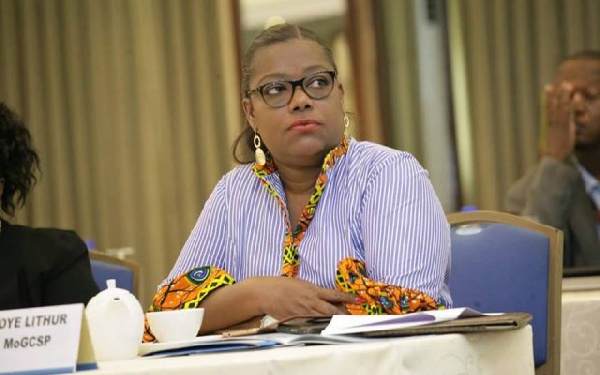A former Minister for Gender, Children, and Social Protection, Nana Oye Bampoe Addo, has expressed disappointment that no provision reserves parliamentary seats for women in the Affirmative Action Gender bill.
The bill, which aims to address gender imbalances and promote equity in both the public and private sectors, was passed on Tuesday, marking a significant milestone in the fight for gender equality in Ghana.
Although she welcomed the bill’s passage, she said reserving certain seats for women should be considered.
“My disappointment is that I don’t see any clear provision on seats that are reserved for women in parliament. This was also something that we were fighting for—that certain seats be reserved for women—but I don’t see that in the bill that I am reading now. I think that is my disappointment,” she said on JoyNews.
READ ALSO: Several Provisions In The Affirmative Action Bill Are Unconstitutional – Haruna Iddrisu
Madam Bampoe Addo reiterated the importance of the bill’s detailed provisions, particularly regarding the roles of various independent constitutional bodies.
According to her, the bill clearly outlines the responsibilities of the Electoral Commission (EC), public service, and other sectors, specifying the percentages they must adhere to.
She added that each sector is required to submit a report to the Gender Equality Committee and the Department of Gender.
“So, I am really happy about that. If we are able to implement, I am sure we would go far, as far as gender equality is concerned and adequate representation of women across the political, social, educational, cultural, and other sectors of society.”
Background
Ghana began its quest for an Affirmative Action Law as far back as 1998 when guidelines on the law were passed by the cabinet.
The law recognised that women’s political participation was a critical component of democratic dialogue and social cohesion.
However, it was lost under the weight of the political upheavals which took place in the intervening years of the country.
The nation has since made various commitments by signing global declarations and protocols that advocate for increased women’s participation and representation in public life.
Ghana’s Parliament in 2011 re-initiated processes to have the Affirmative Action Bill passed into law, but the efforts have suffered setbacks and to date, the bill has failed to pass the basic parliamentary proceedings.
After nearly 60 years following the affirmative action move of the 1960s, Ghana has failed to meet the minimum UN recommended threshold of 30 per cent women representation in either the local or the national level decision-making process.
The bill seeks to encourage efforts towards addressing socio-cultural, political, economic, and educational gender imbalances in private and public sectors in accordance with Clause 4 of Article 17 of the 1992 Constitution.
















